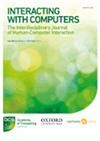Global Virtual Team Working during the Covid-19 Pandemic
IF 1.3
4区 计算机科学
Q3 COMPUTER SCIENCE, CYBERNETICS
引用次数: 0
Abstract
Virtual work introduces distinct challenges when compared to face-to-face or on-site work. Communication and collaboration are key factors in team development and in team performance. When teamwork is of a global nature, imposed because of a pandemic, then additional variables are introduced into the equation. The challenges that global virtual teams (GVTs) encounter when communicating and developing in the context of the Covid-19 pandemic impacts how work is structured and teams develop. This qualitative study was conducted just over 1 year after the start of the Covid-19 pandemic when working from home became mandatory and particular challenges for GVTs became apparent. Data are gathered through an online anonymous survey and followed by semi-structured video-mediated interviews with staff in a large multinational software development company. Findings show that GVTs encounter a number of distinct challenges than face-to-face teams. However, individuals are actively adapting to the situation in which they find themselves and are learning to deal with the challenges by being proactive. Even though the tools used previously may not be entirely suitable for virtual work, GVTs learn to change how tools are used to be more productive and collaborative. Challenges continue to exist in areas, such as knowledge gathering and knowledge sharing. Communication failures can lead to delays and confusion. The findings also indicate that even though GVTs are not communicating as much informally or socially with their colleagues because of remote working in the pandemic, being remote is not having a negative effect on the ability to get work done. Some aspects of team development can be negatively affected when working in GVTs. Impacts are identified relating to trust and relationship building, as well as being able to identify and resolve conflict. These results prompt further research opportunities as organizations and individuals continue to adapt and embrace global virtual teamwork.新冠肺炎大流行期间的全球虚拟团队工作
与面对面或现场工作相比,虚拟工作带来了明显的挑战。沟通和协作是团队发展和团队绩效的关键因素。当团队合作是全球性的,因为疫情而被强加时,那么额外的变量就会被引入等式中。全球虚拟团队(GVT)在新冠肺炎大流行背景下进行沟通和发展时遇到的挑战影响了工作的结构和团队的发展。这项定性研究是在新冠肺炎大流行开始一年多后进行的,当时在家工作成为强制性的,全球价值链面临的特殊挑战变得显而易见。数据是通过在线匿名调查收集的,然后是对一家大型跨国软件开发公司员工的半结构化视频采访。研究结果表明,与面对面的团队相比,GVT面临着许多不同的挑战。然而,个人正在积极适应他们所处的环境,并学会通过积极主动来应对挑战。尽管以前使用的工具可能不完全适合虚拟工作,但GVT学会了改变工具的使用方式,以提高生产力和协作性。在知识收集和知识共享等领域仍然存在挑战。通信故障可能导致延迟和混乱。研究结果还表明,尽管由于疫情中的远程工作,GVT与同事的非正式或社交交流没有那么多,但远程工作并不会对完成工作的能力产生负面影响。在GVT中工作时,团队发展的某些方面可能会受到负面影响。确定了与信任和建立关系以及能够识别和解决冲突有关的影响。随着组织和个人不断适应和接受全球虚拟团队合作,这些结果为进一步的研究提供了机会。
本文章由计算机程序翻译,如有差异,请以英文原文为准。
求助全文
约1分钟内获得全文
求助全文
来源期刊

Interacting with Computers
工程技术-计算机:控制论
CiteScore
2.70
自引率
0.00%
发文量
12
审稿时长
>12 weeks
期刊介绍:
Interacting with Computers: The Interdisciplinary Journal of Human-Computer Interaction, is an official publication of BCS, The Chartered Institute for IT and the Interaction Specialist Group .
Interacting with Computers (IwC) was launched in 1987 by interaction to provide access to the results of research in the field of Human-Computer Interaction (HCI) - an increasingly crucial discipline within the Computer, Information, and Design Sciences. Now one of the most highly rated journals in the field, IwC has a strong and growing Impact Factor, and a high ranking and excellent indices (h-index, SNIP, SJR).
 求助内容:
求助内容: 应助结果提醒方式:
应助结果提醒方式:


